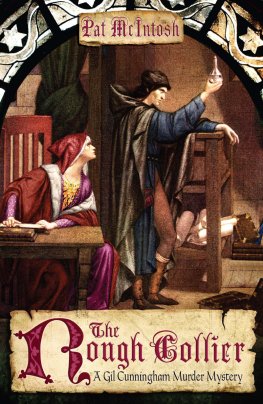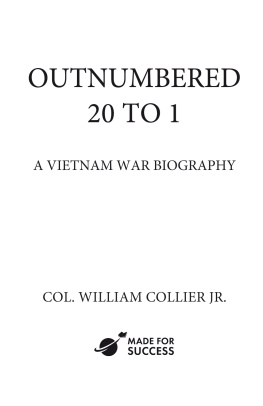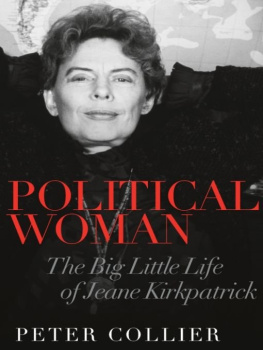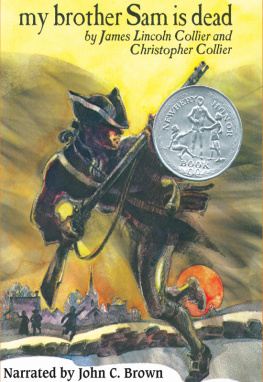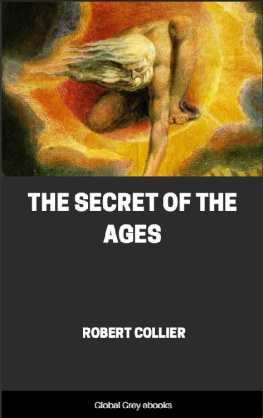Copyright 1997 by Princeton University Press
Published by Princeton University Press, 41 William Street,
Princeton, New Jersey 08540
In the United Kingdom: Princeton University Press,
Chichester, West Sussex
All Rights Reserved
Library of Congress Cataloging-in-Publication Data
Collier, Jane Fishburne
From duty to desire: remaking families in a Spanish
village / Jane Fishburne Collier.
p. cm.(Princeton studies in culture/power/history)
Includes bibliographical references and index.
ISBN 0-691-01665-8 (cloth : alk. paper)
ISBN 0-691-01664-X (pbk. : alk. paper)
1. FamilySpainAndalusia. 2. Social norms.
3. Social controlSpainAndalusia.
4. Self-realizationSpainAndalusia.
I. Title. II. Series.
HQ650.15.A53C64 1997
306.8509468dc21 97-10672
CIP
https://press.princeton.edu/
P
ISBN-13 978-0-691-01664-1
ISBN-10 0-691-01664-X
eISBN: 978-0-691-21586-0
Acknowledgments
THIS BOOK REFLECTS more than thirty years of conversations with friends and colleagues in Spain and the United States. I owe particular thanks to the people of Los Olivos who welcomed me, my husband, and our baby in the fall of 1963, when we arrived to settle in the village for nine months. Wonderful neighbors such as Isabel and Pepe, Julia and Gumersindo, and Amelia and Esteban invited us into their homes. Other villagers, such as Francisco and Modesta, Lorenza and Esteban, and Pilar of the store offered friendship and advice. My deepest gratitude is to Eloina and Cristina Fernndez Gonzlez, whose presence I deeply miss, and to their sister Magdalena. They and their kinLoli and Pedro, Cndido, Remedios and Miguel, Emilio and Loli, Mara and Mariano and their childrenhave enriched my life in more ways than I can count. On return visits to Los Olivos, new neighbors such as Josefa and Nemesio, Resurre and Baldomero, Juliana and her daughter Angeles, Miguela, Manola, Carmen, and Conce helped me to understand the changes that had occurred during my absence. Antonio and Mercedes offered warm hospitality and intelligent comments on current events, and the storekeepers Mari and Pili shared their insights along with sales advice. Among the emigrants who taught me about the effects of participating in urban job markets, Alfonso and Pepita, Amparo and Francisco, Pepi and Felix, Conce and Luis, Lorenza and Esteban and their children, Miguela and Juan Jos, Julia and her children, and Florentina, Fernando, and Angeles deserve particular thanks. I also want to thank all those who agreed to interviews. Their kindness and patience made this book possible.
Of the North American friends and colleagues who helped me, I owe particular thanks to those who did field research in Los Olivos and generously shared their findings with me. My husband George Collier not only gave me access to his field notes, census analyses, and historical data but also accompanied and encouraged me through the years of research and writing. Special thanks also go to Richard and Sally Price, who spent the summer of 1964 living with a village family and who later offered detailed and helpful suggestions on an earlier draft of this book manuscript. Michelle Zimbalist and Sally Simmons also shared their field notes from the summer of 1965, and Michelle Zimbalist Rosaldo, as my colleague at Stanford University during the 1970s, worked with me in developing the analysis of gender that informs the story I tell of changing subjectivities in Los Olivos. Her premature death cut short our conversations, but her influence is reflected in everything I have written since we first collaborated in developing an undergraduate course, Women in Cross-Cultural Perspective.
Spanish colleagues also offered invaluable advice and help. Carmelo Lisn-Tolosana graciously encouraged my husbands and my research. Joan Frigol R. remains a steadfast friend and insightful critic. Adelina Muoz Molina shared her experience and analysis of social change in Spain when she visited Stanford University. In Andalusia, colleagues at the Universidad de Sevilla such as Alfredo Jimnez, Salvador Rodrguez Becerra, Isidoro Moreno, and Encarnacin Aguilar Criado offered hospitality and advice. In Barcelona, George Collier and I enjoyed Verena Stolckes company, generosity, and broad knowledge of contemporary anthropology.
Because I spent more than ten years writing this book, I owe thanks to many friends and colleagues who commented along the way. In 198485, when I spent a year at the Stanford Humanities Center, Nancy Fraser helped me to formulate my ideas. In 198889, when a fellowship to the Mary I. Bunting Institute at Radcliffe College gave me the time I needed to write a first draft, several Bunting Fellows, particularly Sandra Bartky, offered useful comments on some chapters. I also owe very special thanks to Sally Merry, my friend and colleague from Wellesley, who not only read and commented on each chapter as I wrote it in 198889 but continued to read revised chapters and to comment on them by E-mail.
After 1989, when I was able to circulate a nearly complete draft of the book manuscript, I received advice from many friends and colleagues. I owe particular thanks to Louise Lamphere, David Gilmore, Richard Maddox, Akhil Gupta, Nancy Donham, and Ruth Behar, whose useful comments I have tried to incorporate. Richard and Sally Price, George Collier, and Bill Maurer offered particularly detailed and helpful suggestions. I also benefited from the advice of Liliana Surez-Navaz, Rosalva Ada Hernndez, Heather Paxson, Helen Gremillion, and Ann Swidler, who read and commented on chapters of the manuscript.
A sabbatical in 199596 finally gave me time to revise the earlier manuscript. During the revision process, I benefited particularly from the comments and criticisms of Bill Maurer and Saba Mahmood, both of whom, but particularly Saba Mahmood, helped me to find the language I needed to represent the changes I observed in Los Olivos. Sally Merry offered particularly helpful suggestions for revising the introduction.
The revised manuscript benefited from the comments of Jane Schneider and Michael Herzfeld, the readers chosen by Princeton University Press. Both of them offered many helpful suggestions, and Michael Herzfeld later gave me invaluable advice for revising the final chapter on Andalusian nationalism. I also want to thank the editors at the Press: Mary Murrell for her skillful management of the review and publication process, and Kim Mrazek Hastings for her thoughtful copyediting.
This book would not have been possible without institutional support for field research. George Colliers and my first stay in Los Olivos in 196364 was financed by a Fulbright fellowship, administered by the Fulbright Commission in Spain. In 1980, the Comit Conjunto Hispano-Norteamericano para la Cooperacin Cultural y Educativa gave us a travel grant to explore possibilities for conducting a restudy, and the Center for Research in International Studies at Stanford University allowed us to spend the summer of 1981 in Los Olivos. Most of the research on family change was carried out in 198384, with support from the National Institute of Child Health and Human Development, grant number R01-HD-17351, for a project titled Late Marriage, Family Constellation, and Kinship Change. In 1987, Joan Frigol R., George Collier, and I received a grant from the National Science Foundation, BNS 86-15724, for a project titled Ethnographic Study of Community Development in Spain: 19001986. This grant, combined with another in 1988 from the U.S.Spain Joint Committee allowed us to compare historical processes of family change in eastern and western Andalusia.



